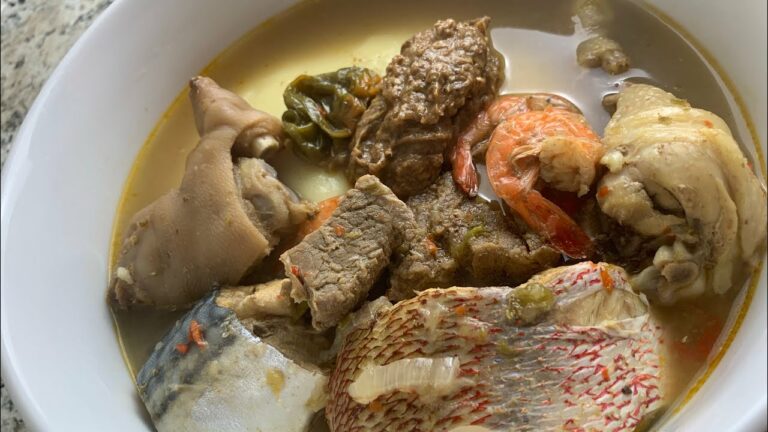Introduction: Liberian Cuisine Overview
Liberian cuisine is a blend of diverse cultures and flavors that reflect its rich history and traditions. The country’s cuisine is characterized by a wide variety of vegetables, fruits, and meats, including chicken, goat, and fish. Liberian cuisine is also heavily influenced by its geography, with coastal regions featuring seafood dishes, and inland regions focusing on rice and stews.
Liberian cuisine is also known for its use of spices and herbs, such as ginger, garlic, onion, and a variety of peppers. These ingredients are used to add depth and flavor to dishes, creating a unique taste that is both bold and satisfying.
The Influences of Liberian Cultural Practices
Liberian cuisine is heavily influenced by the country’s cultural practices and traditions. For instance, the use of cassava and plantains in Liberian cooking can be traced back to the West African tradition of using starchy vegetables in dishes. These ingredients are used to provide sustenance and to create a sense of fullness, which is important in many African cultures.
Another influence on Liberian cuisine is the country’s history of colonization and trade. Liberia was founded by freed slaves from the United States and the Caribbean, and this history is reflected in the cuisine, with dishes such as jollof rice and fried chicken being popular in both Liberia and the United States.
The Rituals Behind Liberian Cooking Techniques
Liberian cooking is a ritualistic process that involves careful preparation and attention to detail. Many dishes require hours of cooking time, with ingredients being added gradually to create layers of flavor. In addition, there are specific techniques used in Liberian cooking, such as pounding spices and grinding herbs by hand, which create a unique flavor profile that cannot be replicated by machine.
The cooking process is also steeped in tradition, with many dishes being prepared for specific occasions or rituals. For example, fufu, a staple dish made from cassava and plantains, is often served during ceremonies and celebrations.
Food Presentation and its Significance
In Liberian culture, food presentation is just as important as the taste of the dish. Liberian dishes are often served on communal plates, with diners using their hands to eat. This tradition is rooted in the belief that food is meant to be shared and enjoyed together.
In addition, the way food is presented can also have symbolic significance. For example, a dish that is arranged in a circular pattern may represent the cyclical nature of life, while a dish that is served in a rectangular shape may symbolize stability and order.
The Role of Liberian Cuisine in Celebrations & Festivals
Liberian cuisine plays a central role in celebrations and festivals, with food being an important part of the culture’s social fabric. During festivals, such as the New Yam Festival, traditional dishes are prepared and shared among friends and family.
In addition, the act of preparing food for others is seen as a way to show love and respect. For example, during weddings, the bride’s family will often prepare a large feast for the groom’s family, and vice versa.
Intersectionality: The Fusion of Liberian and Western Cuisine
As Liberia continues to evolve and change, so too does its cuisine. In recent years, there has been a fusion of Liberian and Western cuisine, resulting in dishes like Liberian-style fried chicken and jollof rice pizza.
This intersectionality is reflective of the country’s history and culture, with Liberian cuisine adapting and evolving to meet the needs of a changing society. At the same time, the incorporation of Western ingredients and cooking techniques serves as a bridge between cultures, creating a unique culinary experience that is both familiar and new.

